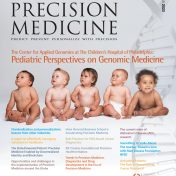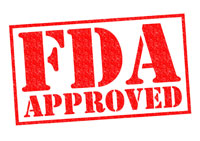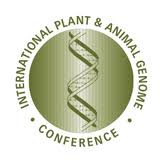It is an honor to be published in The Journal of Precision Medicine’s March 2020 issue where I have outlined the current best practices for NGS-based cancer diagnostics. In this article, I detail: The need to standardize clinical reporting Popular annotation sources and functional prediction algorithms The AMP Guidelines and how these can be applied with Golden Helix’s Diagnostic Platform… Read more »
Any validated bioinformatics pipeline must be continuously monitored. Quality management in clinical testing labs ensures that any divergence from predefined quality metrics during the analysis of clinical samples is investigated. For example: There is an insufficient number of sequence reads that passed the predefined base quality score threshold The number of variants identified in a data set may deviate substantially… Read more »
Last week, I attended the Advances in Medical Genetics conference in Riyadh, Saudi Arabia. I was asked to present on “Big Data in DNA Analytics”. The event was hosted by Prof. Dr. Majid Alfadhel of the King Saud Bin Abdulaziz University for Health Sciences in collaboration with the Postgraduate Training Center. The event was held to discuss the pros and cons surrounding the… Read more »
New breakthroughs are being made every day in genomics. It’s a dynamic and fascinating industry, and with exceptional growth forecasted in the DNA sequencing market, a new generation of people are entering the field: future researchers, clinicians, counselors and doctors. This new generation will need to learn not only the science, but also understand how to process the massive amounts… Read more »
In 1914, the German cytologist Theodor Boveri coined the phrase “Cancer is a disease of the genome”. At this time, his ideas were as equally revolutionary as they were highly contested. Fast forward. More than a hundred years later, Next-Generation Sequencing effectively permits a highly sensitive analysis of cancer cells. It can help us to understand mutations associated with cancer… Read more »
Genetic Data Warehousing e-Book In our webcast last week, we announced the upcoming release of VSWarehouse, a scalable genetic data warehouse for VarSeq. Genetic data warehousing becomes more important as Next-Generation Sequencing is taking off in the clinic, creating significant data management issues for clinicians, scientists and IT professionals alike. How can we retain the massive amounts of data coming out… Read more »
The next release of VarSeq will ship a new product that is highly relevant to our customers in clinical testing labs. Via VSReports, VarSeq now has the ability to generate clinical-grade reports. These reports are fully customizable, containing focused and actionable data. VS Reports ships with report templates that are modeled off of the ACMG guidelines, the de-facto gold standard… Read more »
Precision Medicine e-Book “It’s far more important to know what person the disease has than what disease the person has.” – Hippocrates (460 BC – 370 BC) Almost 2,500 years ago, Hippocrates captured one of the key principles underlying precision medicine. In the 21st century we take the understanding of the individual characteristics of a person to a new level…. Read more »
Recently, Golden Helix, Inc. announced the addition of VSPipeline to our VarSeq software suite. VSPipeline is a command-line interface that will allow high throughput environments the ability to tap the full power of VarSeq’s algorithms and flexible project template system from any command line context, including existing bioinformatics pipeline. So, what is the big deal? Here are the top five… Read more »
Regulatory Issues Regulatory bodies such as the Federal Drug Administration (FDA) already have a full plate. In the US, FDA-regulated products account for 20 percent of each dollar spent by American consumers each year. More specifically, the work of the regulatory authorities include the following: Carefully considering benefits and risks when evaluating medical products Staying on top of rapidly advancing scientific innovations… Read more »
The Educational Challenge Precision medicine will fundamentally change how health care is practiced. Of course, we have a long way to go. For most practitioners today, their knowledge of the human genome was established many years ago. However, new therapies and diagnostic methods are pouring in on a daily basis. So, how do we make sure that the current and… Read more »
Bioinformatics Pipelines and Systems Infrastructure The genetics industry is undergoing a fundamental shift from a clinical science focus to a bioinformatics focus. Genetic services require a greater level of data analytics sophistication than is required for other laboratory testing. Currently, data generated by new tests overwhelms current information technology systems and human interpretation capabilities. This is one of the reasons… Read more »
Adoption by Patients and Health Care Professionals Precision Medicine leverages the most innovative technology advances in the field of genetics. The concept is “en vouge”! We know that the science will give us increasingly better treatment options. I have covered this in my previous blog post. But does it really matter? Precision medicine only will become a reality if both… Read more »
Tailoring diagnostic and therapeutic strategies Many have called Sir William Osler (1849-1910) the “Father of Modern Medicine”. He was one of the four founding professors of Johns Hopkins Hospital where he was instrumental in creating the first residency program for the specialty training of physicians. He brought medical students from the classroom to the bedside for clinical training. He shared… Read more »
Reimbursement and Cost – Precision Medicine Part II The promise of Precision Medicine is to leverage highly targeted therapies for the benefit of the patient. By understanding better what makes us unique and leveraging our genetic make up, we hope to improve the outcome for the individual. Now, this blog is focusing on one issue that we collectively have to… Read more »
Precision Medicine Initiative On January 30, 2015, the Precision Medicine Initiative was announced by President Obama. Many in our field, researchers and clinicians alike, recognize that such a program would bring additional funding into our space to design, develop and implement new diagnostic tests that are aiding physicians in their practice of precision medicine. Here is what we know. Led by the National Institutes of Health (NIH),… Read more »
Last week we conducted a webcast on “Cancer Gene Panels”; you can find the recording here. We had some excellent questions which we answered during the webcast and a few more that we didn’t get to in the allotted time. Please find answers to those questions here: 1. Are Cancer Gene Panels just another stepping stone on the way to… Read more »
It was a great trip down to Florida this year. AGBT 2015 was an exciting event with lots of great presentations. For us in this tightly-knit community it is an excellent networking opportunity to catch up with existing clients and partners, but also to make new connections. Now, it is impossible to reflect on all the great talks. We were… Read more »
TriCon 2015 was well worth the visit to San Francisco. The combination of extensive programming in conjunction with a large exhibition makes it a must-attend event for scientist and professionals in our industry and the conference seems to grow year after year. This year, we paid a lot of attention to the Clinical Sequencing portion of the event. In this track,… Read more »
The Plant & Animal Genome XXIII Conference (PAG) was again a success. It’s the venue for leading genetic scientists and researchers involved in plant and animal research to meet with their peers. If anything the event continues to grow. The largest population of registrations tend to be from an Academic background (64%), with Industry (25%) and Government (11%) sectors comprising… Read more »
















